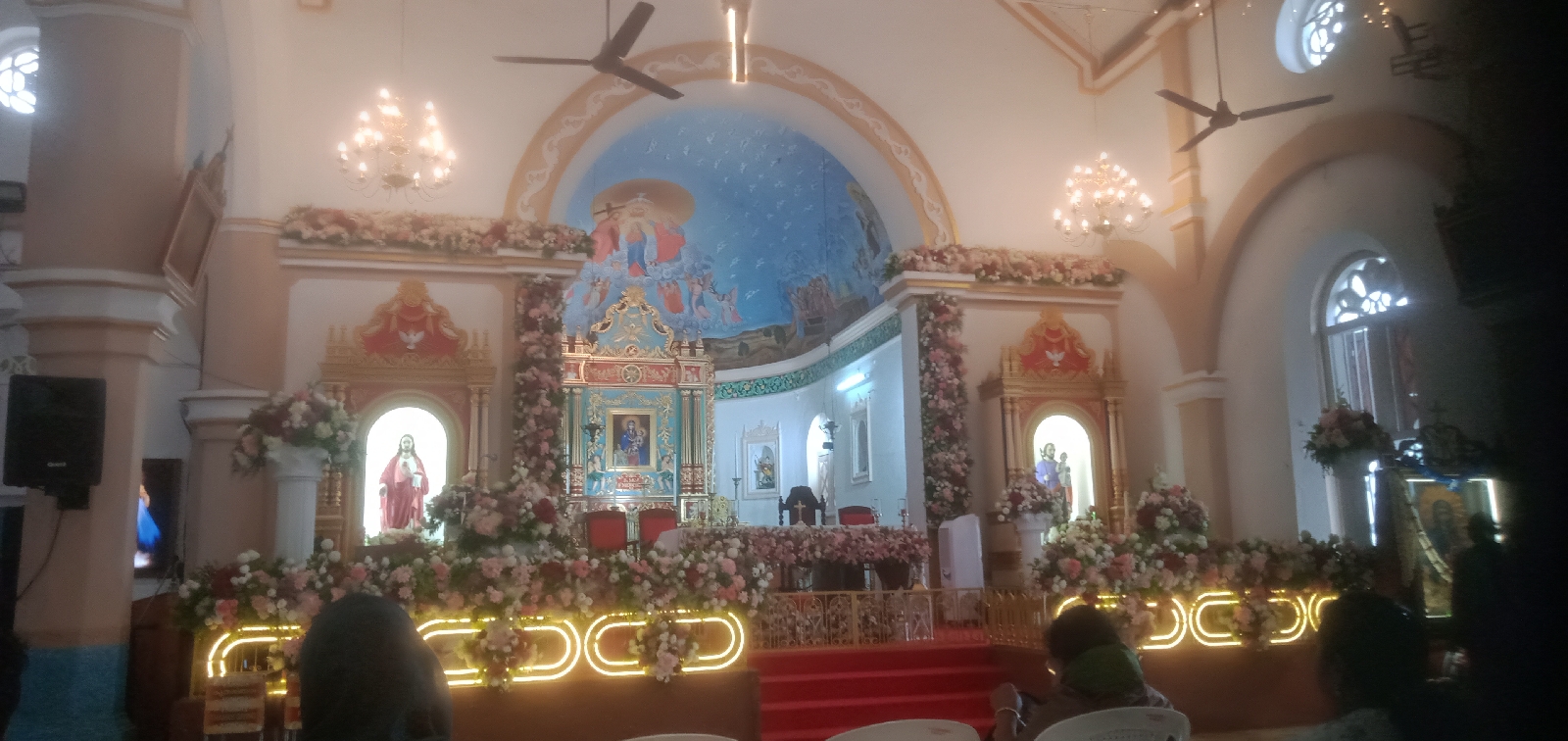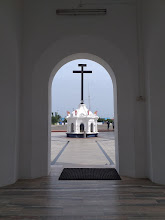A year is passing by.
Wednesday, 31 December 2025
2025
Remains of the Christmas
Saturday, 27 December 2025
Christmas
Tuesday, 9 December 2025
Branches
Tuesday, 25 November 2025
A happy Sunday
Monday, 17 November 2025
Wishes...
Distance and Nearness
The days that broke my heart,
when even the thought of being away from you was unbearable.
And then came the days
when I did not want to be near you,
nor even think of you.
Strangely, it was those distances
that slowly rebuilt desire,
and the closeness
that restored the intimacy we cherished.
Now, as the end of the road draws near
and I look back at the years with a grateful heart,
I see how we survived because of both.
The distances became a form of nearness,
and the nearness, at times, a kind of distance—
yet together they bound us,
shaped us,
and turned us into the gift
life meant us to be for each other.
A quiet clap for the love that endured.
In a world filled with broken homes,
restless hearts,
and partners after countless relationships,
still searching for happiness,
a lasting love feels like a miracle.
But that too is life —
fragile, unpredictable, unfinished.
So let us at least celebrate love in our minds,
honour it in silence,
and be grateful for the rare moments
when two people truly find each other
and remain.
Thursday, 30 October 2025
Mary's month
Sunday, 28 September 2025
Sunday, 20 July 2025
A poem
Hey there, Monsoon—
You found your way.
Wasn’t sure you’d show up,
With the world all talk of change and doom,
And skies too shy to make room.
But here you are, all gale and tide,
Storming in with your winds wide,
Like that brother who never calls ahead—
Just barges in, well-fed and wet.
You’ve brought that smell—
Of Kerala soil and mango spell,
Of sambar brewing, warm and thick,
Of old Cochin with memory slick.
The kids sleep deep, they dodge the bell,
Old men rock with tales to tell.
And women at windows, quiet as mist,
Think of Sita and what we missed.
You’re not just rain.
You’re not just grey.
You’re Karkidakam—the soul’s pathway.
A hymn, a vow, a whispered psalm,
A breath held deep in Ramayan calm.
You’re the month that bends our knees,
That calls the chants into the breeze.
Though roads flood and clothes don’t dry,
You teach us still to look up high.
So stay a while. Don’t rush past.
We’ve got some mantras meant to last.
Some tears to shed, some hearts to mend,
Some broken prayers we’d like to send.
And yes, the tea is hot and sweet.
Pull up a chair, rest your feet.
Just try not to break us as you bless,
O sacred month of heaviness.
First Sunday Karkidakam 2025
Tuesday, 1 July 2025
Oh! Pops, guide me...
 |
| A Baptism in progress on Sunday 29 June 2025 |
Sunday, 15 June 2025
Sunday, 8 June 2025
The Pentecost
Thursday, 1 May 2025
Saint Joseph
"The Carpenter's Recollection"
I was
born in Bethlehem, city of David, the city of my ancestors. But I left it
behind, carrying little more than my tools and my dreams. Bethlehem had memory,
yes, but not enough work for a man trying to make an honest living. Nazareth,
though small and rough around the edges, offered opportunity. The Romans were
building, and so were the Herodians—roads, fortresses, palaces. Just a short
journey from the growing city of Sepphoris, Nazareth drew tradesmen like me who
could shape wood, stone, and future.
In
Nazareth, I hoped to shape more than just wood. I hoped to find a life of
peace, of purpose. And then I met her—Mary. There was a stillness about her, a
strength that didn't demand attention but drew it nonetheless. I saw in her
someone who could make a home out of a workshop, a family out of faith.
Then came
the moment that shook the ground beneath me.
She was
with child. And I was not the father.
I will
not pretend that I understood. No man would. I felt betrayed, bewildered—until
the dream came. The angel didn’t explain everything. Just enough: “Do not be
afraid to take Mary as your wife.” It was enough. I trusted the voice, and
more than that, I trusted her.
What
followed was not easy. Whispers followed us through the market. Gossip curls
its way through small towns like smoke, and it choked me more than once. But we
stayed. We worked. We waited.
Then came
the census. We returned to Bethlehem—not for celebration, but registration.
Mary was heavy with child, and I was heavy with worry. I knocked on door after
door, but no one opened. I was a carpenter, not a man of standing. And so, we
ended up where the animals slept. There, in the straw and silence, I held the
light of the world in my arms.
No
midwife, no priest. Just me, trying to comfort Mary, trying to swaddle the
impossible in cloths I had sewn myself.
And then,
danger. Herod’s blade came hunting. I had another dream—Egypt. I gathered what
little we had and ran. A man will do anything to keep his family safe, even
cross deserts into strange lands.
Egypt was
not welcoming. Foreign tongue, foreign gods, no kin to turn to. But I found
work—odd jobs, heavy lifting, doors to fix, wheels to mend. I stood outside
temples I did not enter, waiting for someone to need a hammer or hands. I found
bread. I made sure we had enough.
We
returned when it was safe, but never quite the same. I raised Jesus in
Nazareth, where people never forgot the odd beginnings. Still, I taught Him my
craft—how to work with patience, with care, how to respect each grain in the
wood, each rhythm in life.
I am
remembered as “the just man.” But I was just a man—working, wondering, waiting.
What carried me through was not strength or certainty, but love. Love for Mary.
Love for the boy who grew into the world’s hope. And love for the quiet dignity
of honest work.
Historical
Note:
Nazareth
in the 1st century was a modest village in Galilee, but it was close to Sepphoris—a
Romanized city undergoing heavy construction during the time of Joseph’s life.
Historians believe this could have drawn skilled laborers from surrounding
areas. Unlike Bethlehem, which had political and religious significance but
limited economic opportunity, Nazareth’s proximity to Roman urban projects made
it attractive for tradesmen like Joseph.
A Message
for Today:
To those
seeking work, facing rejection, or holding families together on small
wages—Joseph's journey is yours too. Quiet, faithful persistence. Work done in
the background. Love that builds futures out of uncertainty. In a world that
praises flash and fame, may you find strength in the steady hands of the
carpenter.


































